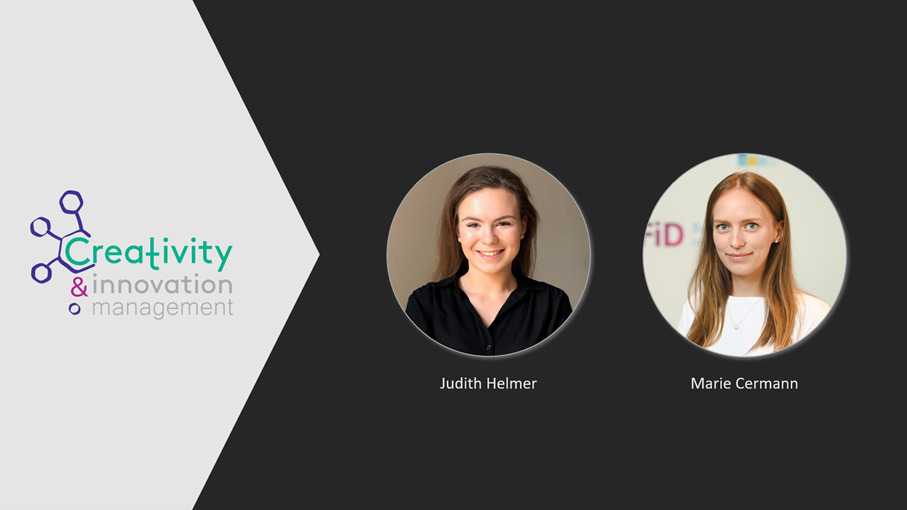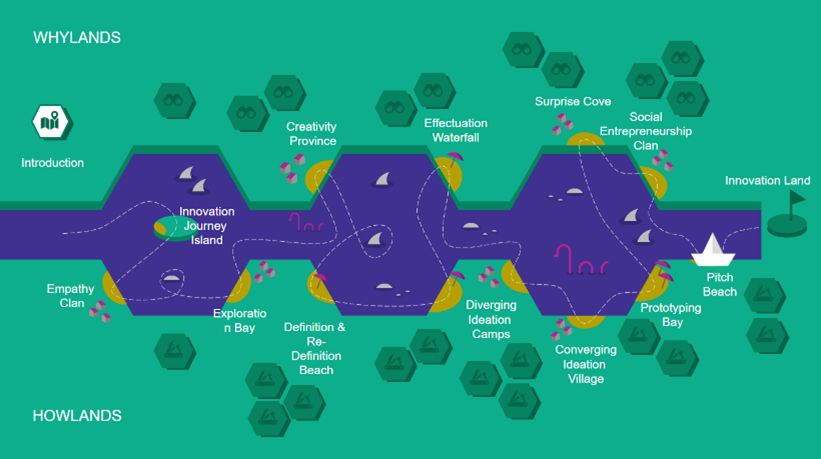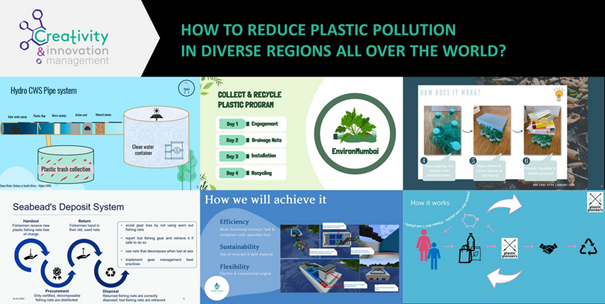17 February 2022 | Münster
This was the question that the 24 international students of the course "Creativity and Innovation" tackled during the last semester under the direction of PhD(c) Judith Helmer and Marie Cermann from the S2BMRC team. The course resulted in many specific solutions to plastic pollution in particular regions all over the world. During the semester they developed creative prototypes and presented them in compelling pitches at the end of the semester.

The course "Creativity and Innovation" is part of the business administration programme at the FH Münster University of Applied Sciences and aims to develop the creative potential of the students. The students dealt with the question on how plastic consumption can be reduced in different regions of the world to solve plastic pollution problems and, therefore, create a long-lasting positive impact in specific underprivileged regions and communities. In small groups, the students studied the regions of Sarajevo (Bosnia Herzegovina), Mumbai (India), Manila (Philippines), Colombo (Sri Lanka), Kampala (Uganda), and Olievenhoutbosch (South Africa). The students were supported by guest lecturers like Prof. Dipl.-Des. Felix Hardmood Beckfrom the Münster School of Design, who founded the NTSI Lab and the Plastic Lab and shared his experiences on the topic of plastic pollution with the students. In addition, they received support from the external lecturer and social entrepreneur Lasse Trappe who developed a filter system for purifying contaminated drinking water.

During the course the students went on an Innovation Journey (see the picture above) and were introduced to the process of design thinking by making use of different tools in order to implement the different design thinking steps.
First, they learned about the important role of empathy when being creative and innovative and how to empathise with their region and discover the given problems. Therefore, the students received support from Zaina Nakabuye who is a visiting PhD candidate from Makerere University in Uganda and who gave the students some personal insights into her work at the university but also into some heavily polluted regions in Uganda. For the next step, the students started defining and re-defining the real problem in their region and formulated specific problem statements to work further with. Those were very handy for the following ideation phase where they learned about what it takes to develop a large number of diverse ideas but also to identify those good ideas that could solve the defined problem. In the end, they turned their most promising idea into a prototype and were asked to prepare a pitch deck. Equipped with some practical tips for "pitching socially" from the guest lecturer and social entrepreneur Michael Kortenbrede from S2BMRC and TAFH at the FH Münster University of Applied Sciences, they could finally pitch their solutions in a convincing way to a jury team.
Snapshot of the student groups' solutions:

In the end, the students presented great solutions and complex prototypes. Among these are:
- The construction of furniture made out of plastic bottles
- A recycling system to reuse plastic bottles through a funding system
- A fishing gear disposal system, which avoids gear loss by returning old worn-out fishing nets and only using certified, decomposable fishing nets
- A plastic collecting and recycling workshop to raise awareness about the problem in the region of Mumbai and to educate and engage the community by learning about the environment, plastic recycling, and creating new products out of the plastic
- A boat which can collect plastic trash in rivers
- A pipe system which can clean rivers from the plastic by collecting the trash and avoiding micro plastic in the rivers, while producing clean drinking water for better health conditions for the communities
Overall, the lecturers and jury members were impressed by the diverse solutions. We - the S2BMRC team - are looking forward to continuing projects on plastic pollution problems in the upcoming Summer School 2022.


